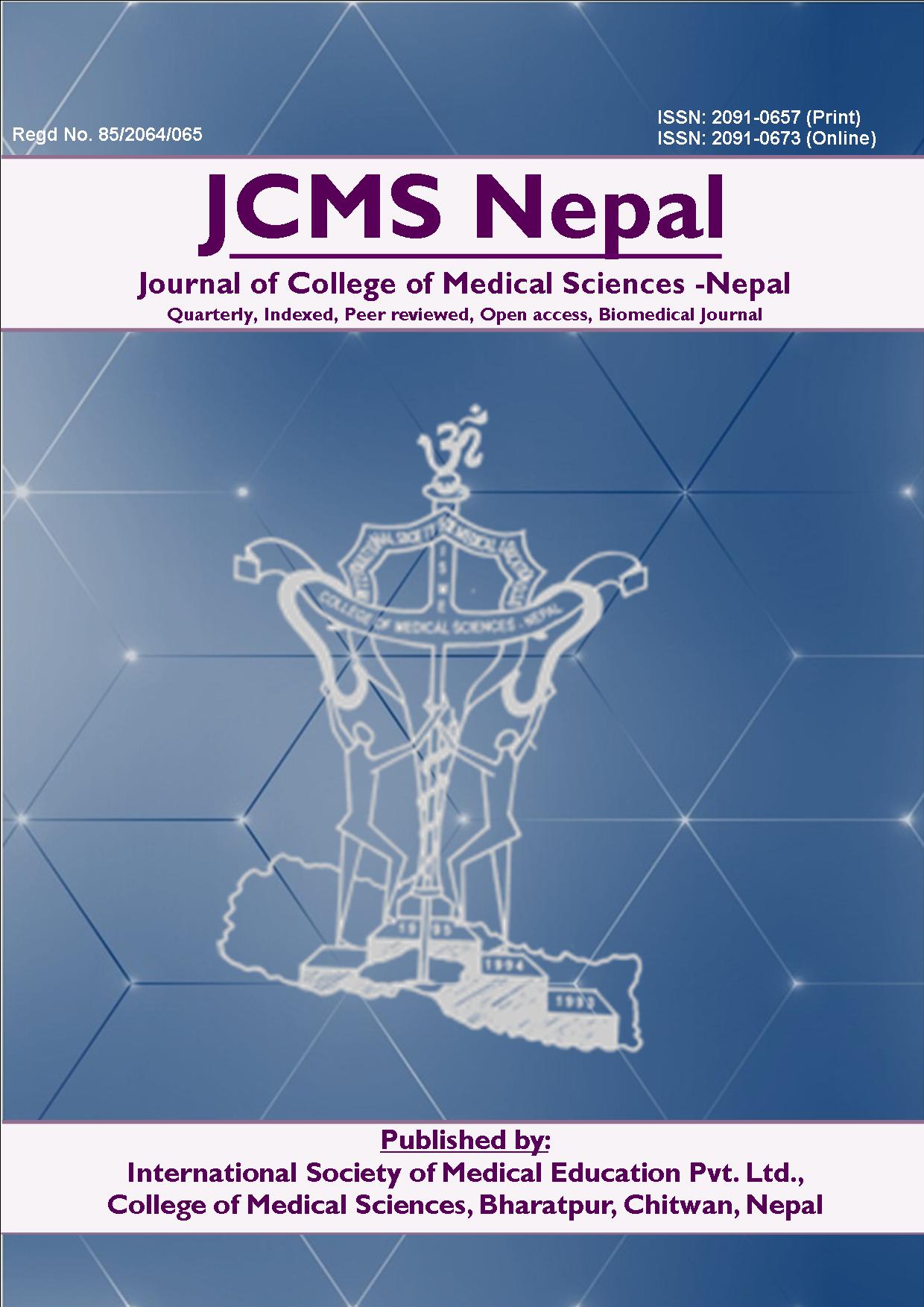Correlation of Total Serum Prostate Specific Antigen and Prostate Specific Antigen Density with subclinical inflammation in Benign Prostatic Hyperplasia
DOI:
https://doi.org/10.3126/jcmsn.v20i1.54877Keywords:
BPH; prostatitis; PSA; PSAD.Abstract
Background
Serum PSA is an important tumor marker for diagnosis of prostate cancer. However, it can rise in some other benign conditions like benign prostatic hyperplasia (BPH), prostatitis, prostatic infarct, instrumentation, prostate manipulations like examination, transurethral resection and urinary tract infection (UTI). The aim of this study was to find correlation of total serum PSA and PSAD with extent and aggressiveness of subclinical inflammation in BPH.
Methods
This cross-sectional study was conducted on 25 cases of transurethral resection of prostate and open prostatectomy specimens diagnosed with BPH received in time period of July 2022 to June 2023. Cases with clinical signs and symptoms of prostatitis, positive urine culture, diagnosed as prostate cancer, cases with history of previous surgery of prostate and history of instrumentation of urinary tract were excluded. Total serum PSA and prostate weight were measured. PSAD was calculated. Histological inflammation was graded with respect to extent and aggressiveness. PSA and PSAD were correlated with extent and aggressiveness of inflammation.
Results
There was no statistically significant correlation between inflammation extent score and total serum PSA (p = 0.318). Also, there was no correlation between inflammation extent score and PSAD (p = 0.308). However, there was significant correlation between inflammation aggressiveness score and total serum PSA (p = 0.011). Similarly, there was also correlation between inflammation aggressiveness score and PSAD (p = 0.010).
Conclusions
Repeat unnecessary biopsies may be avoided in cases with high total serum PSA in presence of glandular epithelial disruption in histological prostatitis.
Downloads
Downloads
Published
How to Cite
Issue
Section
License
Copyright (c) 2024 Binita Goyal, Dr.

This work is licensed under a Creative Commons Attribution-NonCommercial-NoDerivatives 4.0 International License.
This license enables reusers to copy and distribute the material in any medium or format in unadapted form only, for noncommercial purposes only, and only so long as attribution is given to the creator.




